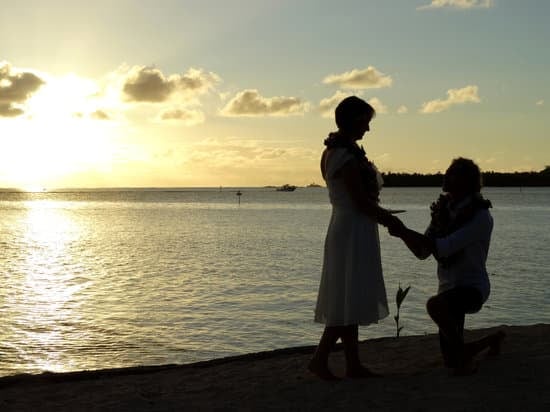Planning a wedding can be an exciting yet daunting task, especially when it comes to determining your budget. “What should my wedding budget be” is a common question that many couples face as they embark on the journey towards their special day. Setting a wedding budget is crucial in order to avoid financial stress and ensure that you stay within your means while planning the perfect celebration of love.
When it comes to setting a wedding budget, there are various factors to consider. These factors include your personal financial situation, the average costs of weddings in your area, and how much you are willing and able to spend on different aspects of your big day. It is important to take a realistic and honest look at your finances before diving into wedding planning, as this will help guide you in making informed decisions about where to allocate your funds.
Researching average wedding costs in your area can provide valuable insight into what to expect in terms of pricing. This information can help you set realistic expectations for your wedding budget and prioritize which aspects of the celebration are most important to you. By understanding the costs associated with venues, vendors, attire, and more, you can begin to outline a budget that aligns with both your vision and financial capabilities.
Factors to Consider When Determining Your Wedding Budget
When determining your wedding budget, there are several important factors to consider to ensure that you are financially prepared for your special day. One of the first considerations should be your current financial situation.
Take a close look at your income, savings, and any outstanding debts to determine how much you can realistically afford to spend on your wedding. It’s crucial to set a budget that is comfortable for you and your partner, taking into account any other financial goals you may have.
Another key factor to consider when determining your wedding budget is the size and location of your wedding. The number of guests you plan to invite and the type of venue you choose can have a significant impact on the overall cost of your wedding. Additionally, the time of year in which you plan to get married can also affect pricing, as peak wedding season tends to be more expensive than off-peak times.
It’s also important to think about what elements of the wedding are most important to you as a couple. Are you prioritizing an extravagant venue, stunning floral arrangements, or delicious food? By identifying your top priorities, you can allocate more of your budget towards those aspects while being willing to compromise on others. Remember that this day is about celebrating your love and commitment, so focus on what truly matters to both of you.
| Factors | Considerations |
|---|---|
| Current Financial Situation | Determine income, savings, debts |
| Size and Location | Number of guests, venue choice, time of year |
| Priorities | Identify top elements that matter most |
Determining Your Wedding Budget Based on Personal Financial Situation
When it comes to planning a wedding, one of the most crucial aspects to consider is determining your wedding budget based on your personal financial situation. Many couples often wonder, “What should my wedding budget be?” This question can vary depending on various factors such as income, savings, expenses, and financial goals. It’s essential to establish a realistic budget that aligns with your financial capabilities to avoid unnecessary stress and debt in the future.
To begin determining your wedding budget, start by taking an honest look at your current financial situation. Calculate your total income and expenses to get a clear picture of how much you can afford to allocate towards your wedding. Consider any existing savings or funds set aside specifically for this special occasion. It’s crucial to be transparent and upfront about what you can realistically spend without jeopardizing your financial stability.
Once you have a rough idea of how much you can comfortably spend on your wedding, it’s important to prioritize where you want to allocate these funds. Decide what aspects of the wedding are most important to you and your partner – whether it’s the venue, catering, entertainment, or decor.
By setting priorities and allocating funds accordingly, you can ensure that key elements of your dream wedding are adequately funded while making necessary compromises in other areas. Remember that flexibility is key when it comes to budgeting for a wedding – being open-minded and willing to adjust as needed will help maintain financial harmony throughout the planning process.
Researching Average Wedding Costs in Your Area
When planning your wedding, one of the first steps to determine what your budget should be is researching average wedding costs in your area. This step is crucial because it gives you a realistic idea of how much weddings typically cost in the location where you plan to tie the knot. By knowing the average expenses for venues, catering, photography, and other services, you can set a more accurate budget that aligns with local industry standards.
According to recent data, the average cost of a wedding in the United States is around $33,900. However, this number can vary significantly based on factors like location, venue type, guest count, and level of customization. For example, weddings in major metropolitan areas tend to be more expensive than those in suburban or rural areas. Researching specific costs for services and vendors in your region will help you tailor your budget to fit your unique circumstances.
To get started with researching average wedding costs in your area, reach out to local wedding vendors for quotes and pricing information. Additionally, online resources such as wedding planning websites and forums can provide valuable insights into typical expenses for different aspects of a wedding.
By taking the time to gather this data, you can make informed decisions about how to allocate your budget effectively and ensure that all essential elements of your special day are covered without breaking the bank.
| Location | Average Cost |
|---|---|
| New York City | $50,000+ |
| Los Angeles | $40,000 |
| Chicago | $35,000 |
Setting Priorities and Allocating Funds for Different Aspects of the Wedding
When it comes to planning a wedding, setting priorities and allocating funds for different aspects of the event is crucial in ensuring that you stay within your budget. One of the first steps in determining your wedding budget is deciding what elements of the wedding are most important to you and your partner. By identifying your top priorities, you can allocate more funds towards those aspects while finding areas where you can save money.
Identifying Your Wedding Priorities
Before you start allocating funds for your wedding budget, sit down with your partner and discuss what aspects of the wedding are most important to both of you. Do you dream of having a lavish reception with gourmet food and an open bar? Or do you place more value on a stunning venue or hiring a top-notch photographer? Once you identify your priorities, you can begin to divide your budget accordingly.
Allocating Funds Wisely
After determining your top priorities, it’s essential to allocate funds wisely to ensure that each aspect of the wedding receives adequate funding. For example, if having a designer dress is crucial to you but flowers are not as important, consider investing more in your attire and cutting back on floral arrangements. By making conscious decisions about where to allocate your budget, you can create a wedding that reflects your values and preferences without overspending.
Having a clear understanding of what matters most to you as a couple will help guide your budgeting decisions and ensure that you have the wedding of your dreams while staying within your financial means. Remember, it’s essential to be flexible and willing to make compromises along the way in order to stick to your budget without sacrificing the overall quality of your special day.
Tips for Sticking to Your Wedding Budget and Avoiding Overspending
It’s essential to understand the significance of having a clear budget in place to guide your spending and prevent overspending. Here are some tips to help you stick to your wedding budget and avoid going overboard:
- Set clear financial boundaries: Determine how much you are willing to spend on your wedding based on your personal financial situation. Consider factors such as income, savings, and any contributions from family members.
- Prioritize what matters most: Identify the aspects of your wedding that are most important to you and allocate more funds towards those priorities. For some couples, it may be the venue or floral arrangements, while for others, it could be photography or entertainment.
- Create a detailed budget breakdown: Break down your overall budget into specific categories such as venue, catering, attire, decorations, and music. Assign a realistic amount to each category based on research and average costs in your area.
Sticking to your wedding budget requires discipline and careful planning. Avoiding unnecessary expenses and finding creative ways to save money can help you stay within your financial limits while still creating a beautiful and memorable celebration.
Remember that overspending on your wedding day can lead to unnecessary stress and financial strain in the long run. By following these tips and being mindful of your spending habits throughout the planning process, you can achieve the wedding of your dreams without breaking the bank.
Creative Ways to Save Money on Your Wedding Without Sacrificing Quality
When planning a wedding, it is important to find ways to save money without compromising the quality of your special day. By being creative and thinking outside the box, you can cut costs in various areas without sacrificing the overall experience. Here are some tips on how to save money on your wedding:
DIY Décor and Favors
One way to save money on your wedding is by creating your own décor and party favors. Get crafty and personalize items such as centerpieces, table settings, and wedding favors. Not only will this save you money, but it will also add a personal touch to your wedding.
Choose an Off-Peak Wedding Date
Consider having your wedding during the off-peak season or on a weekday instead of a weekend. Venues and vendors often offer discounts for weddings held during less popular times, allowing you to save money while still enjoying the same services.
Opt for Digital Invitations
Save on printing and postage costs by sending out digital invitations instead of traditional paper invites. There are many online platforms that offer beautifully designed e-invites that can be customized to suit your wedding theme.
By implementing these creative ways to save money on your wedding, you can stay within your budget while still creating a memorable and special day for you and your partner. Remember, it’s all about prioritizing what matters most to you both and finding cost-effective solutions that work for your unique circumstances.
Importance of Keeping Track of Expenses and Updating Your Budget as Needed
When planning your wedding, one of the most crucial aspects to consider is how to keep track of expenses and update your budget as needed. It is essential to have a clear understanding of where your money is going and whether you are staying within the set budget. By regularly monitoring and adjusting your budget, you can ensure that you have a realistic framework for managing costs effectively.
To help you stay organized and on top of your wedding finances, here are some key tips for keeping track of expenses and updating your budget as needed:
- Create a detailed spreadsheet or use a wedding budgeting tool to track all expenses, including deposits, payments, and any additional costs that arise.
- Assign specific amounts to each aspect of your wedding, such as venue, catering, attire, decorations, and entertainment, to ensure that you allocate funds accordingly.
- Regularly review your budget against actual spending to identify any discrepancies or areas where adjustments may be necessary.
By following these steps, you can maintain better control over your wedding expenses and make informed decisions about where adjustments may be needed. Keeping track of expenses and updating your budget as required can help prevent overspending and ensure that you stay on track with your financial goals for the big day.
Remember to communicate openly with your partner throughout the planning process regarding any changes or updates to the budget. Being transparent about finances will help you both stay accountable and make decisions together that align with your overall wedding vision while also keeping costs in check.
How to Handle Unexpected Costs and Last-Minute Expenses Within Your Wedding Budget Plan
Planning a wedding can be an exciting and memorable experience, but it also comes with its fair share of financial considerations. In order to ensure a smooth and stress-free planning process, setting a realistic wedding budget is essential. It’s crucial to understand what should my wedding budget be based on your personal financial situation, preferences, and priorities.
Once you have determined your wedding budget, it is important to consider various factors that may affect your overall costs. Researching average wedding costs in your area will give you a better idea of what to expect and help you allocate funds accordingly. Setting priorities and deciding where to allocate the majority of your budget will also play a significant role in ensuring that you stay within your financial boundaries.
While sticking to your wedding budget can be challenging, there are several tips and strategies you can implement to avoid overspending. By being creative and finding ways to save money without sacrificing quality, you can still have the wedding of your dreams while staying within your set budget. Additionally, keeping track of expenses and updating your budget as needed will help you stay organized and on top of your finances throughout the planning process.
And finally, knowing how to handle unexpected costs and last-minute expenses within your wedding budget plan will give you peace of mind when unforeseen circumstances arise. By following these guidelines, you can plan a beautiful and memorable wedding while staying within your financial means.
Frequently Asked Questions
What’s a Realistic Budget for a Wedding?
Determining a realistic budget for a wedding depends on various factors such as the location, number of guests, and personal preferences. On average, weddings can range from $20,000 to $35,000 in the United States.
Is $10,000 a Good Wedding Budget?
A $10,000 wedding budget can be considered reasonable for couples looking to have a simple and intimate celebration. However, it may require careful planning and prioritizing expenses to stay within the set budget.
Is $5,000 Enough for a Wedding?
While $5,000 may seem tight for a wedding budget, it is definitely possible to have a lovely ceremony within this amount. Couples can consider options like having a smaller guest list or opting for more affordable venues and vendors.

I have been involved in marriages for over 20 years helping couples and singles understand more about them.





